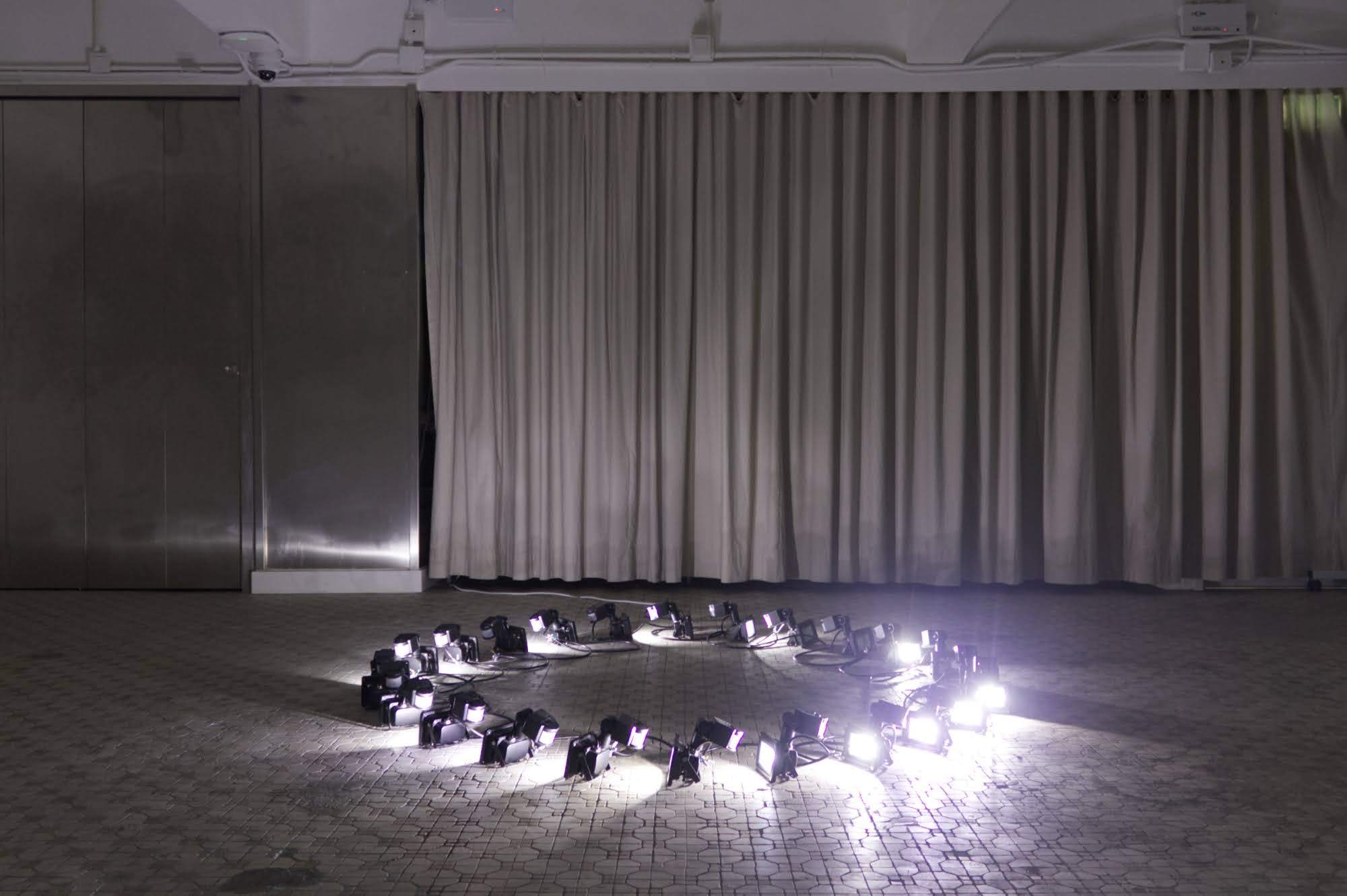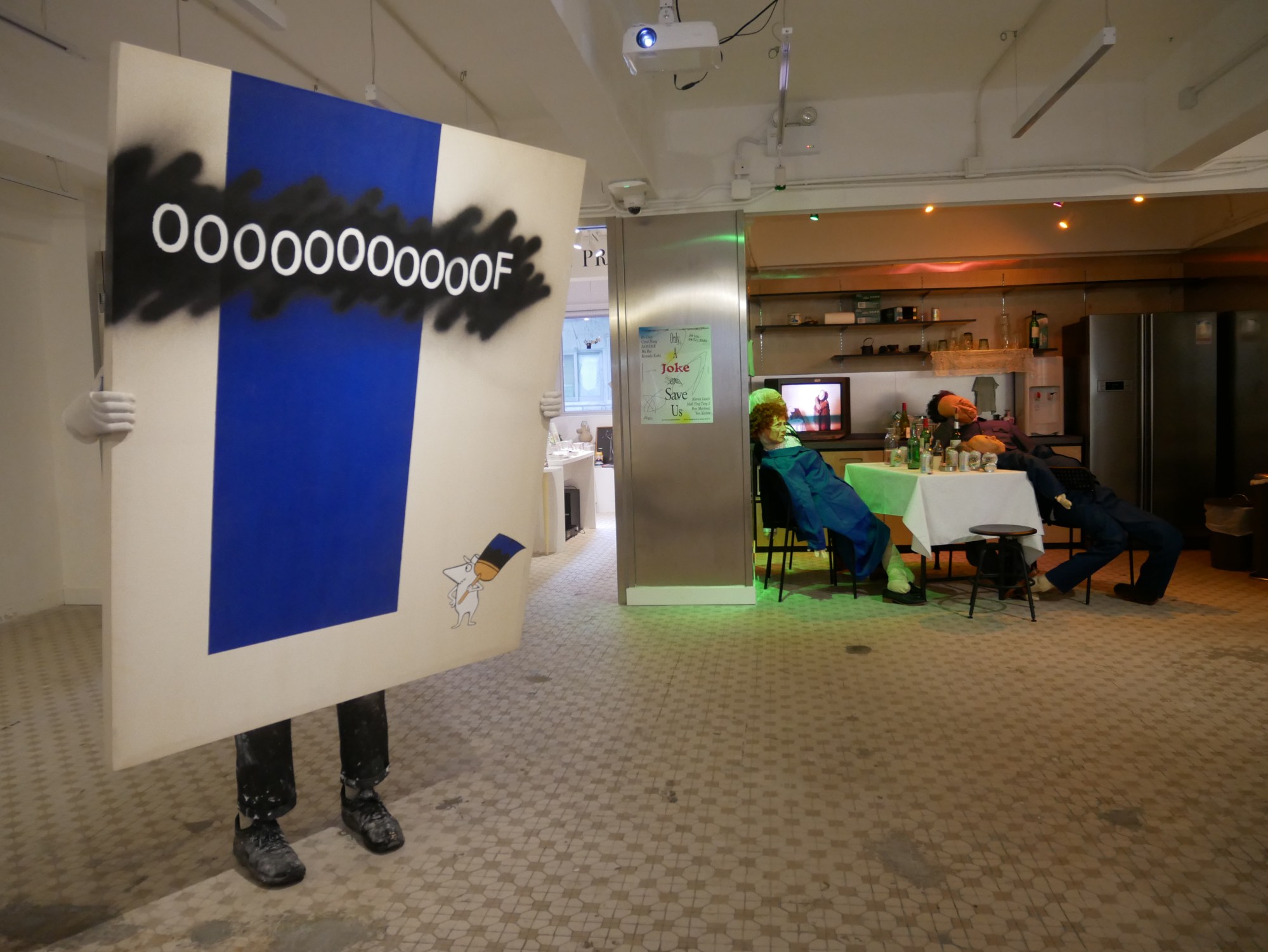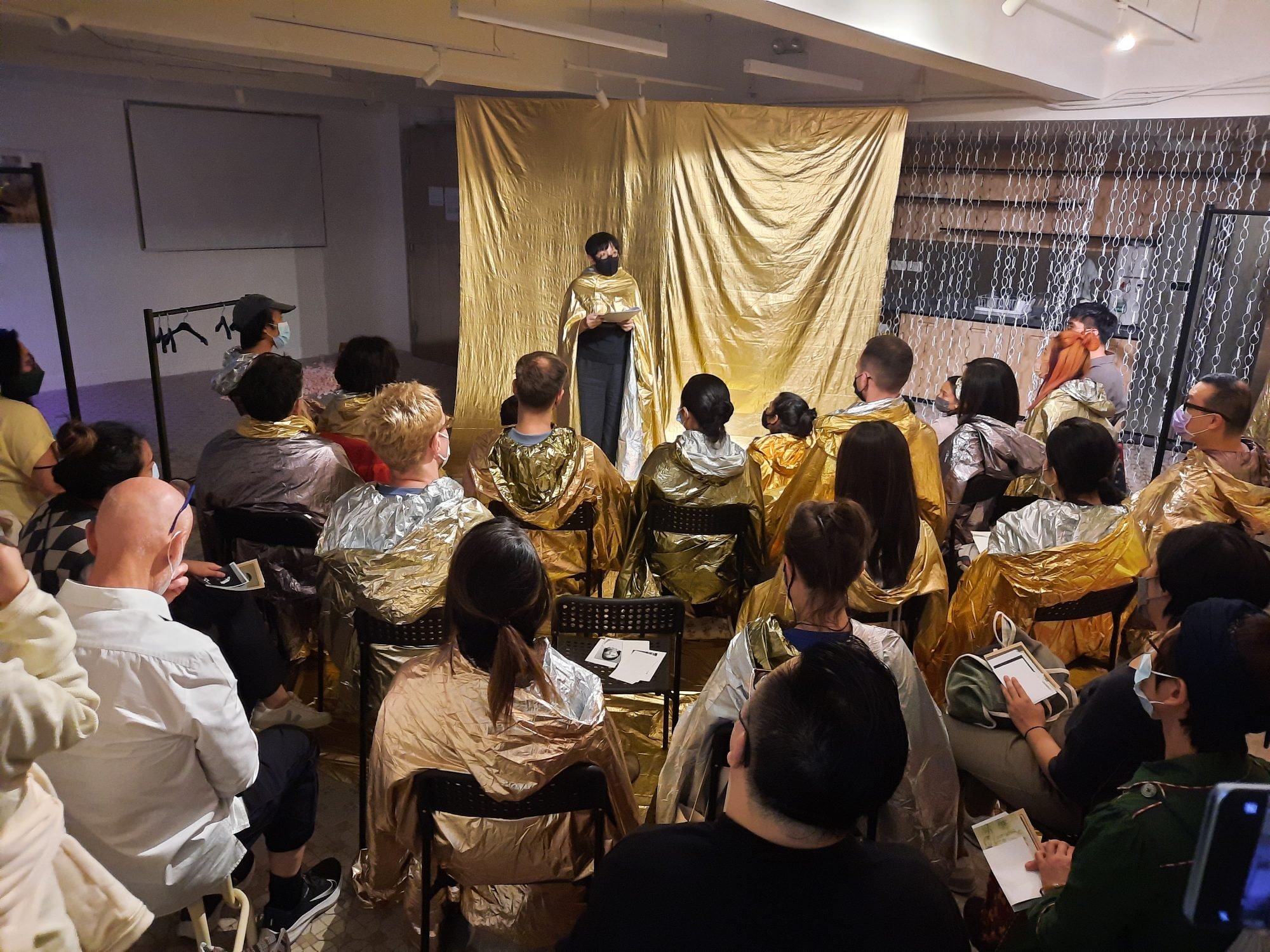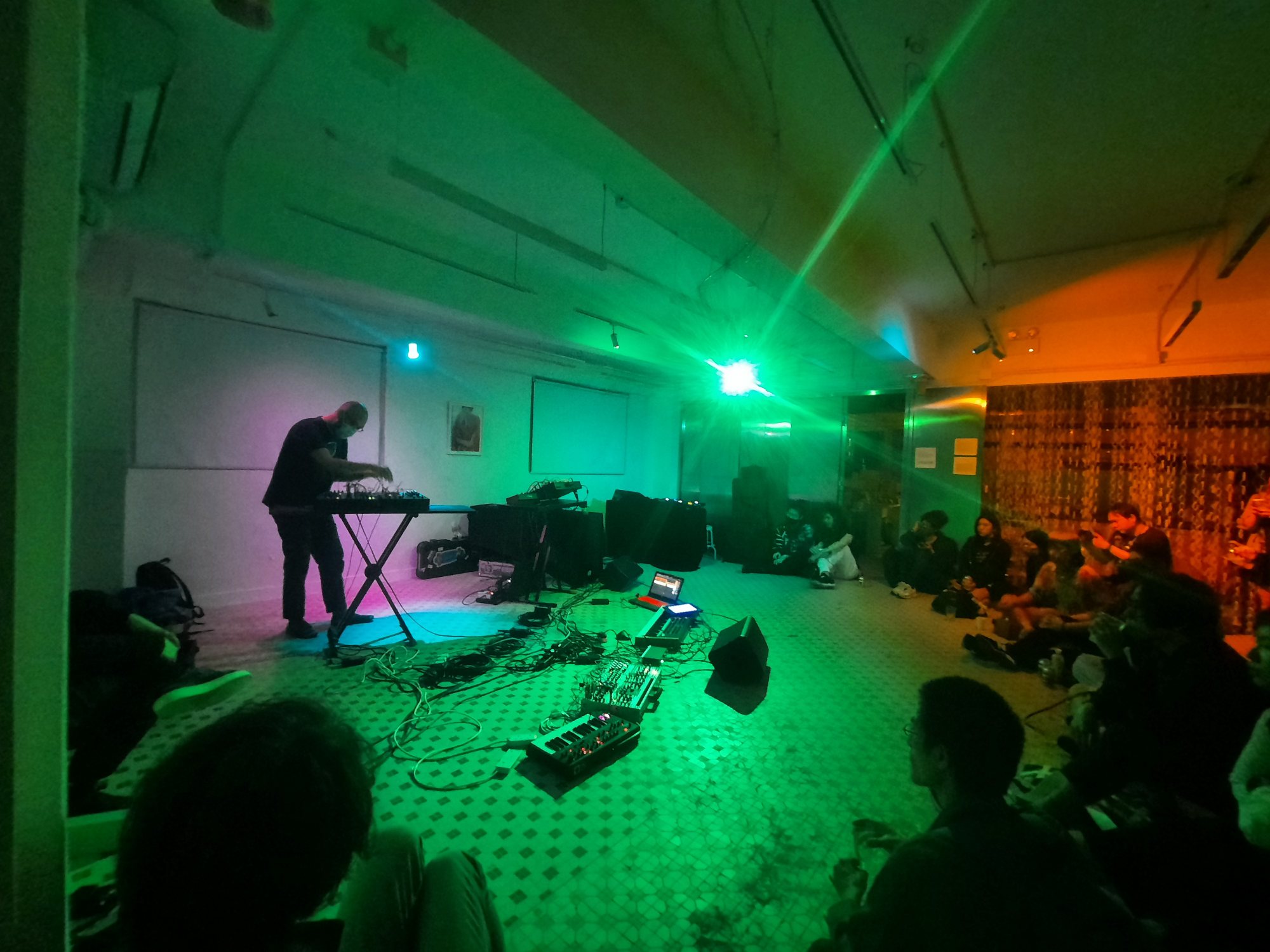Current Plans, one of Hong Kong’s most popular non-profit art spaces, known for fun, provocative and quirky exhibitions and performances, is bidding farewell to its Sham Shui Po home with a bang this weekend.
Spanning Friday evening and Saturday morning, an overnight public performance suitably titled Currently Still Planning to Perform will be held with two groups of collaborators, Per.Platform and Stilllive.
And on Sunday – moving out day – founder Eunice Tsang will set up a podcast station where visitors can drop in for a chat: about their life stories, what they think about Current Plans, their views about the world, or anything else they like.
The content will be recorded and put on the website. Tsang is also considering including the transcripts in a book about the space, where she wants to push the idea of “democratically opening up the floor for face-to-face conversation”.

On Friday, more than 15 artists connected to the Hong Kong live art festival Per.Platform as well as Yuki Kobayashi, the Japan-born founder of Stilllive and current resident artist at the Centre for Heritage, Arts and Textile, will be on site to create a group performance that reflects the changes in Sham Shui Po and the vibrant grass roots art community that has emerged in the Kowloon neighbourhood.
Members of the public are invited to join from 7pm onwards and people can stay as long as they want.
She saves Hong Kong’s neon signs, but it was in Taiwan her eyes were opened
She saves Hong Kong’s neon signs, but it was in Taiwan her eyes were opened
Running Current Plans, known as Present Projects from 2020 to 2021, has given her the most rewarding years of her life so far, says Tsang, who has been an art producer, curator, and arts journalist in London and Hong Kong.
It started out as a dream, when Tsang was an art student in London, and the reality of running the space has opened up her mind to discovering, presenting and making art in hidden corners of the urban landscape, she says.
“It was about carving a niche for people like myself, who felt they did not really fit in the near boxes of the contemporary art scene in Hong Kong, and I have been pleasantly surprised by the amount of encouragement and support [from] people,” she says.
When Present Projects started, Sham Shui Po was not the tourist hotspot that it is today, and was still largely known as a low-income area full of cheap shops selling textile and electronics.
Since then, rent has been on the rise and old tenement buildings redeveloped. In the past year, the much-loved Yen Chow Street Hawker Bazaar and cultural hotspots such as Openground in Tai Nan Street have closed.

In July, Tsang received a phone call from her landlord asking them to leave by the end of the year. A new tenant is willing to pay almost double the rent she is currently paying.
Having got over the initial shock, Tsang says she now prefers the word “hibernation” to describe the next step for Current Plans – its very name indicative of the perilousness and uncertainty of such a project – as she plans to reopen in an industrial space lent by her friend next year.
“In two months or so, hopefully we will return bigger and fatter,” said Tsang, “I still have so much I want to do and explore through Current Plans in coming years. I really hope people will continue to be curious, and reach out, and not be afraid to visit us at our new project space.”
The new place, however, is still a temporary solution and Tsang is on the hunt for a permanent space in a grass roots area to host more pop-up shows and experimental projects. She hopes she can find a financially sustainable model based on institutional partnerships, public grants and support by private patrons.
The last time Current Plans held such an overnight performance was back in September 2021. The artist Ashley Leung had invited the audience to send messages to her via Signal from a separate room.

Her mobile phone screen was projected in the centre of the space and the audience could see the conversations as they evolved to deeper and more serious matters as the hours went by. The show went on until 5am and people ended up sleeping in the space.
This Friday, Leung will present an installation that pays tribute to her last performance there, which will also be connected to her live performance in France at the same time.
The performance note promises to address themes such as liminal time and space, eviction and escapism, the body in relation to the capitalistic world.
“We are always eager to push the boundaries of an art space. You [often] only experience art or a gallery during opening times. By doing this performance overnight, it subverts the idea of being just a visitor, but the uncanniness of this ungodly hour, spending it together with people you might not know, focuses on intimacy and awareness of your body’s presence,” says Tsang.

Tsang says she will miss her Sham Shui Po neighbours, such as an old lady who gifted her an old cathode ray tube television for exhibitions, and a local hardware store uncle who taught her how to use certain chemicals and materials.
“But I learnt that one needs to have patience and trust in the process, it is OK to walk slower sometimes so you can gain energy for the jump later,” says Tsang.
“I hope people will think more about how to encourage and help young creatives survive in the long run, because in our very capitalist world, everything is so accelerated, so it’s easy to start something but so difficult to sustain.”
Group improvisation and discussion, Current Plans, 2/F, 13 Wong Chuk Street, Sham Shui Po, November 24, 25, 7pm to 1am.

